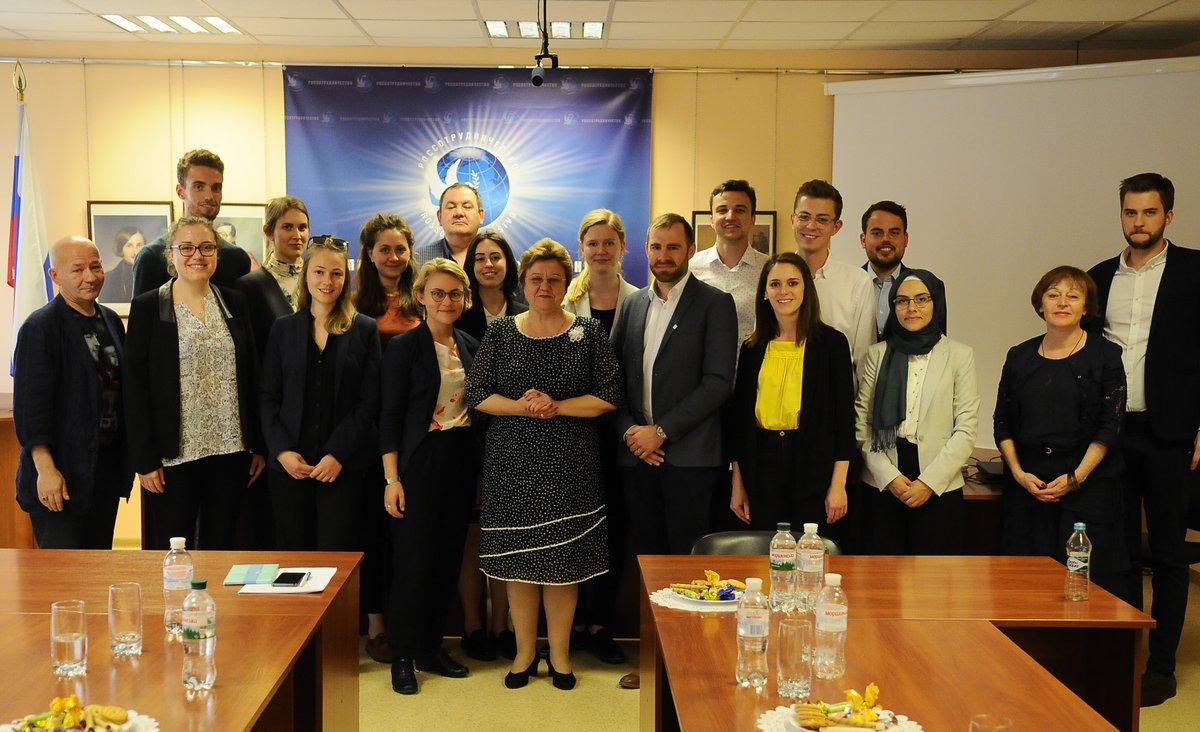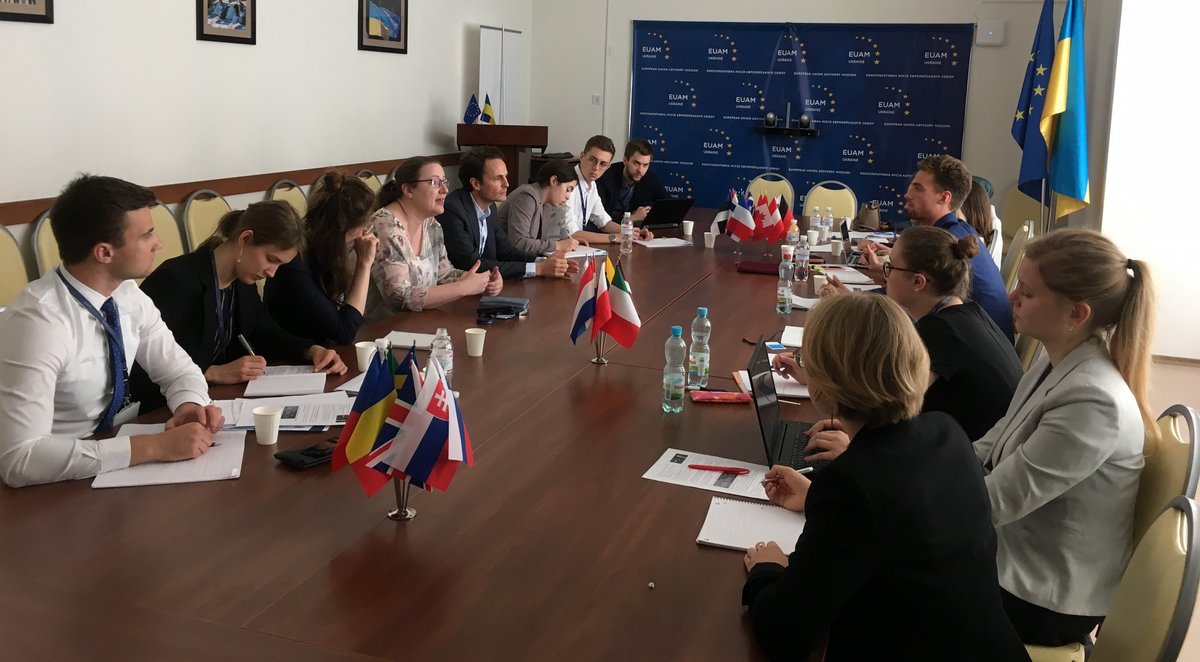The Politics of Crisis Management and Conflict Resolution in Ukraine
Applied research seminar led by Jun.-Prof. Dr. Steffen Eckhard and Vytautas Jankauskas (download the seminar evaluation here).
In the summer-semester 2019, the Research Group for Public Administration and Organization Theory (Jun.-Prof. Dr. Steffen Eckhard and Vytautas Jankauskas) offered an applied research seminar in the MA-program International Administration and Conflict Management with a student field trip to Ukraine. The seminar addressed the puzzles, trade-offs and challenges related to the conflict dynamics in Ukraine. Additionally, the students looked into the attempts of local authorities, civil society actors and international organizations, such as the OSCE and EU, to resolve the conflict and improve the current situation in Ukraine.
The master-level seminar consisted of two parts. Firstly, the students had two intense workshop days. Each of them prepared a presentation on a specific topic. After the seminar weekend students were familiarized with the history of the conflict, Ukraine’s political background, involved outside actors in the conflict resolution and implications and potential solutions for Ukraine and international community. That weekend the students had the first chance of leading a research interview with Jonas Ohmanas from the NGO Blue-Yellow via Skype who reported on the ongoing conflict in the Donbass.
Well prepared, the six-day field trip to Kiev started at the end of May 2019. Shortly after the election of the new Ukrainian president, Zelensky, the seminar participants were offered the opportunity to find answers to their remaining questions on the outbreak and strategies for resolving the ongoing conflict. Each of the students was tasked with leading one research interview with local experts. Not only students who fought in the Maidan Protests and even in the Donbass were interviewed. Also Ukrainian politicians, the Chief Editor of a Radio Station, political scientists, and employees of International Organizations, such as the EU, OSCE and UN shaped the students’ perspective on the conflict. (download the field trip agenda here)

Learning about the Russian perspective on Donbas, students experienced a perspective shaped by denial: The terms war or conflict were not part of the vocabulary in this interview, instead the director of the Center for Russian Culture and Science referred to misunderstandings and brainwashing. According to her, Russia was not involved in Donbass.
At the same time, the OSCE reported ceasefire violations every day. From January till March 2019, 83.047 ceasefire violations have been registered. Yet, the number of ceasefire violations decreased compared to 2018. Discussions with the OSCE Special Monitoring Mission and the UNHCR also drew the students’ attention to the human dimension of the conflict and people’s everyday struggle at the contact line. Most of the interviewees were very open to the students’ questions and gave interesting insights into the political system of Ukraine. They made it clear that the Donbass is much more of a political than an ethical conflict.

One of the aims of the seminar was to use the information collected during this field experience and to submit it to the public in the form of six short policy papers or opinion essays. As a result, the acquired knowledge is not lost and the public has access to these unique impressions:
- Angela Mehrer and Florian Wagner: A Normative Power in Crisis? How Germany’s foreign policy in the Ukraine Crisis risks to undermine its image in the international system (download here)
- Tom Milson and Charlotte Mueller: Gas-Politik: Energy Politics and the Ukraine Conflict (download here)
- Charlotte Felbinger, Elena Leuschner and Klara Lindahl: Reforms are no zip ties: Demands for quick and easy fixes are a threat to Ukraine (download here)
- Caroline Ackermann and Lea Merkel: The Ukraine Crisis and the Impact of Discourse, A Conflict for some, a War for Many (download here)
- Arianna Orlando and Betül Özturan: The EU Hybrid Diplomacy Between Deep Concern for Ukraine and no ‘Red-Line’ for Russia (download here)
- Ruud Buijvoets and Pavlo Cherchatyi: Ukrainian perceptions: engaging in corruption is necessary to survive (download here)
Op-eds by three student teams from the seminar were even published online. Access the pieces through the following links:
- Tom Milson and Charlotte Mueller
- Betül Özturan and Arianna Orlando
- Charlotte Felbinger, Klara Lindahl and Elena Leuschner
The seminar can be considered a complete success (the overall grade in the student evaluation was 1.08): Above all, this is attributable to our partners from Taras Shevchenko University, particularly our local host Professor Alexander Ivanov who made a great contribution to the smooth running of the whole trip in a large and busy city such as Kiev. In addition, thanks are owed to Jun.-Prof. Dr. Steffen Eckhard and Vytautas Jankauskas for leading the seminar in its preparation and on the ground in Ukraine; also to Tom Milson and Nina Hänjes for their administrative support behind the scenes and finally to the University of Konstanz who generously financially supported this seminar.
Authored by all participating students
